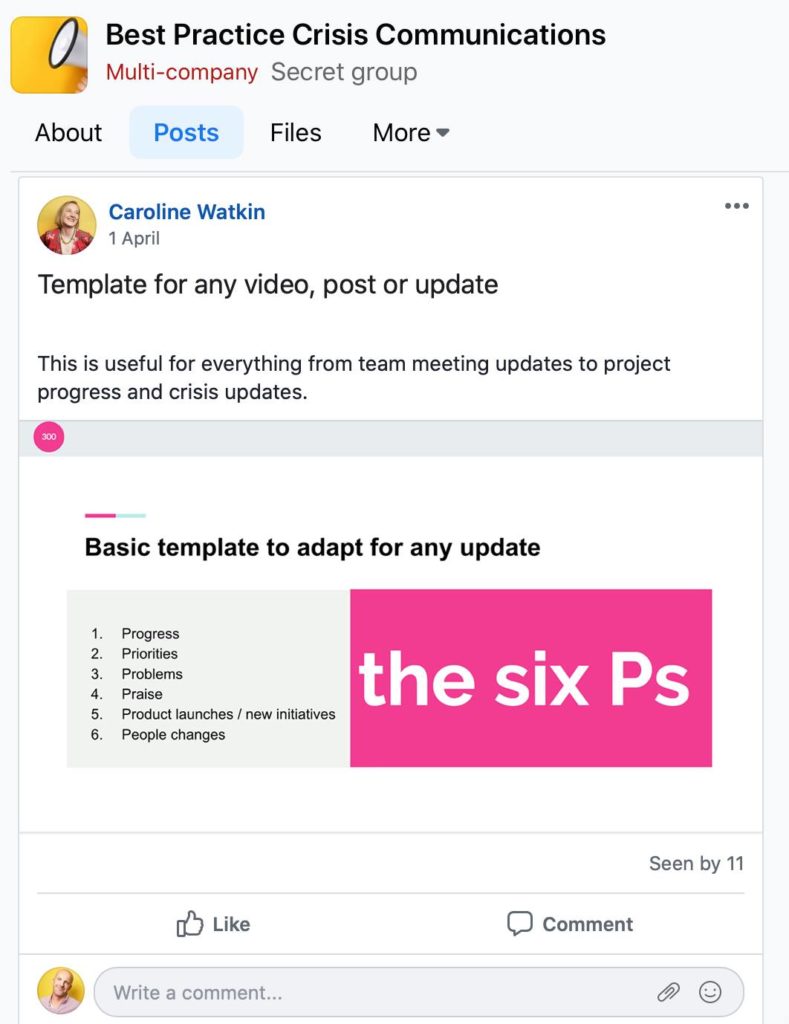
Media expert Martyn James joined 300 for a Q&A style webinar on managing company communications on Tuesday 31 March.
Martyn James is a media relations specialist, broadcast media expert and regular TV and radio commentator, including Rip Off Britain, You & Yours and BBC Breakfast. Here’s a summary of what we learnt from Martyn.
Don’t focus on deflection
Martyn talked us through his unique, ethics-focused approach to media relations and communications. In simple terms, it means focusing on actually answering the difficult questions posed by your staff and journalists rather than ‘spinning’ an answer.
Avoid bridging technique
This is the ‘dark art’ of the Tony Blair era! It involves turning the question around to: “what people really want to know is.” Martyn said this technique just does not work and disengages the audience. If we think about our frustration when we hear politicians do this on Question Time we know it’s a turn-off.
Articulate what you do well and your danger areas
Instead, Martyn recommends spending time thinking about what your organisation does well and not so well. Look at the areas where you might be in danger and address those questions head-on. This will actually engage your audience rather than talking down to them.
“Remember you will be tarnished with the crimes of your overall industry too so make sure you articulate your difference.”
Martyn James, media expert and broadcaster
Honesty – tell people what you can not tell them!
Key to communications is honesty with your audience. If you can’t share sensitive information tell people why. If you don’t have visibility, tell people rather than bluster. People can handle the truth far better than you expect.
Real Life Example:
Caroline Watkin, 300 co-founder, shared an example of Richard Francis, CFO at Netcentric, who managed many buyouts including when Day Software was bought by Adobe. When he was at Myriad, they faced a difficult financial situation and he told the staff he wasn’t sure if they’d have jobs in three months’ time, but could promise an amazing experience that would be great for their CV. They loved this approach, and everyone stayed.
Do the right thing and do the next right thing…
How you say things makes a big difference. But focusing on doing the right thing makes more long term business sense and means we can communicate with authenticity. Many CEOs argue against it because they think it costs more. Even when times are tough taking the long view wins out.

Sign up here
“The stories of doing the right thing become company folklore and build customer loyalty.”
Caroline Watkin, 300 Co-founder
Say one thing and say it well
Simplicity is key. In a crisis, the normal comms principles still apply. Every email, every post, every video, every team message; decide the key point and build your message around that. Put the key messages upfront. Make it easy for people. What’s the one thing you’d like people to remember?
Get your key point across in less than two sentences
You should be able to explain what your firm does in one sentence/breath in order to get your message across to journalists and in fact, any key audience.
Understand the journalist’s role and point of view
The average salary of £27k. Junior reporters often start out at £12k. They work under immense pressure to meet deadlines. They are processors of knowledge rather than retainers of knowledge and have an agenda for their publication or broadcast that’s different to yours. Understand them to avoid frustration.
Empathise
What is your audience going through? What are your staff going through? What would you want to know if you were them?
Be adaptable
Things are changing repeatedly so keep on your toes and be ready to change your approach, don’t stick rigidly with a line if it’s becoming clear the story has moved on.
Here’s a link to get all our best practice communications assets
This includes:
1. Introductory Guide to Dealing with Journalists
2. Download the webinar recording
3. Join our multi-company group on Workplace from Facebook
Watch the webinar recording:
Let us know if you need support with media training, or help talking to your people and customers more effectively: hello@the300.co Read more about how we help companies with crisis communications here.